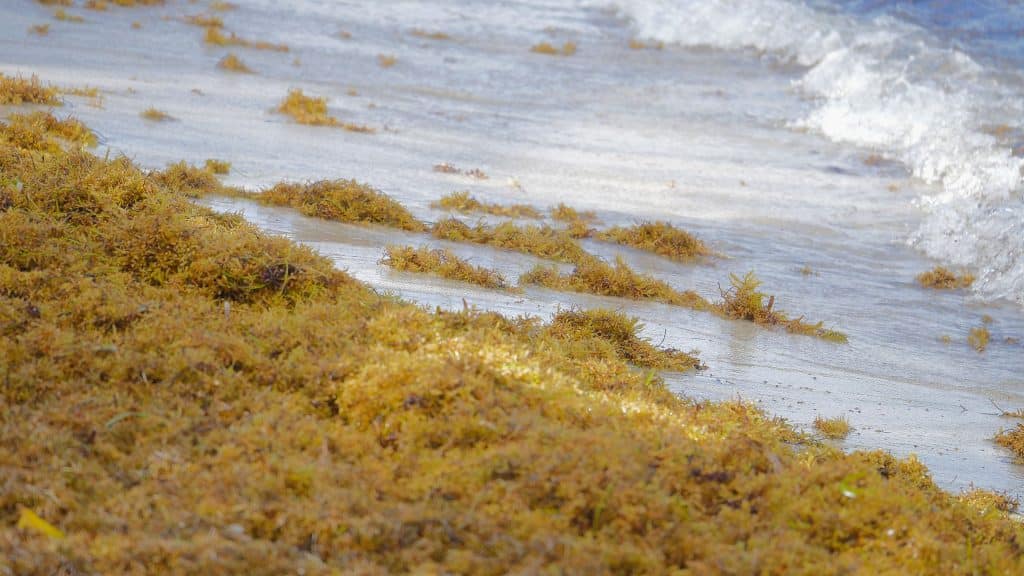The beaches of Nzema, in western Ghana, are experiencing a rapid invasion of aquatic algae. In a recent media release, Patrick Ekye Kwesie, president of the Western Nzema Youth League, outlined the gravity of the situation, both socially and environmentally.
“These invasive algae are choking the beaches and turning the clear blue waters into golden brown. It also reduces the sunlight needed by ocean plants and smothers shallow coral reefs, such as those in the Beyin area of Jomoro (western Ghana). This directly impacts our main livelihood as fishermen are now finding it difficult to reach their catches,” explains Patrick Ekye, before appealing for help from the Ghana Environmental Protection Agency (EPA) and other stakeholders.
Sargassum
The invasive aquatic plant we are talking about here is sargassum. Sargassum is a seaweed found in tropical seas. It is sometimes called sea grapes or floating grass. The seaweed is found in the form of islands and has long provided shelter for many species such as turtles, crabs, eels and some fish. But when they become too abundant, they can become a real problem for marine ecosystems.
When it washes up on beaches, sargassum forms thick brown mats which, as they decompose, emit a stench, due in particular to the emission of hydrogen sulphide. In addition to the ecological problem, sargassum also poses health and economic problems, directly affecting tourism on the coasts where it is found.
Read also-AFRICA: Saving the oceans on land
According to Mengqiu Wang and his colleagues at the University of South Florida in the United States of America, the proliferation of sargassum is due to two factors. Firstly, there is the discharge of considerable quantities of fertiliser into the sea, and secondly, the orientation of this fertiliser towards the algae initially present, by marine currents.
Boris Ngounou
